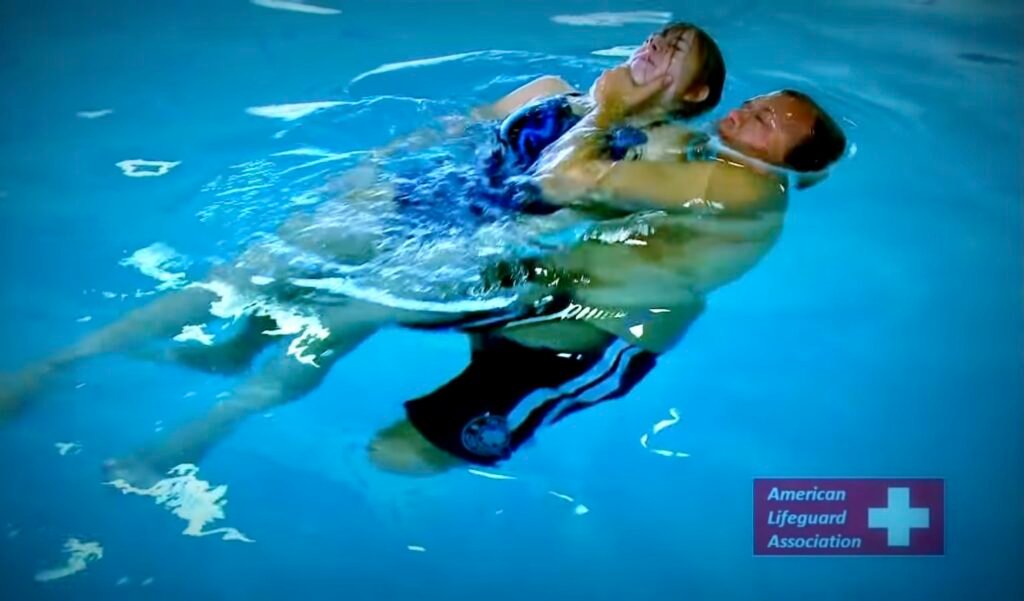Doing the lifeguard job is not just ordinary employment, but a commitment to save lives and ensure everyone at the pool or beach is safe. If you are a USA lifeguard, you understand how important it is to remain vigilant and keep your skill set updated. This article will delve into what this life-saving activity involves, why it is important, and some basics for one to be on top of the game.
Whether you’re an experienced lifeguard or new to the field, knowing about recertification process is paramount. We’ll deliberate on the benefits of recertification right from its advantages; the things you should do to make it successful. By this end of this post, you will be well-equipped to handle your recertification with confidence and continue making a difference in your community.
Why Lifeguard Recertification Matters
Public Safety
Swimmers’ safety is largely dependent on the role played by lifeguard recertification helps ensure that lifeguards are still capable of responding promptly during emergencies.
By frequently refreshing their certification courses ,lifeguards get fully informed about all recent safety measures as well as methods. Such being proactive assist in reducing accidents risks hence enhancing public security generally.
Keeping Skills Fresh
With time even highly skilled professionals may lose some competence levels. Lifeguard recertification ensures skills are kept up-to-date and guards can respond rapidly in emergency cases any time required.
Recertification training provides opportunities for lifeguards to update their knowledge base and practice vital life saving techniques they might have forgotten. Over time these trainings help build muscle memory which makes them more confident when doing their work later on.
Complying With Legal Requirements
In most states, lifeguard certification is a must-have before one can get employed as a guard. Getting re-certified guarantees that guards adhere to legal requirements prescribed by state laws hence retaining their jobs.
Employers and regulatory bodies require valid certificates from lifeguards to prove competence. Failure to recertify can result in job loss or fines.
Understanding the Recertification Process
What Is Involved?
Lifeguard recertification typically combines practical and theoretical assessments. These may include written exams, hands-on skills tests, and scenario-based evaluations.
The process of recertification aims at evaluating whether a lifeguard will be able to perform essential duties like CPR, first aid, and water rescue among others. Moreover, it ascertains their understanding of safety procedures as well as emergency response protocols.
How Often Do You Need to Recertify?
Recertification requirements vary depending on states and organizations. Generally speaking, a lifeguard needs to renew certification every 2 years to maintain the currency of their qualifications.
Always contact your employer or certifying body for specific information about renewal courses. Be aware of when your certificate expires so you can plan ahead and avoid any lapses.
Costs and Time Commitment
Depending on the provider and location, there is a wide range in costs for recertification courses; from $50-200 approximately. Generally, this takes between one or two days but it varies accordingly.
Renewing your certifications is an investment in yourself that will pay off with continued employment opportunities that allow you to keep people safe. Manyemployers offer reimbursement for recertification costs incurred by their staff members.
Choosing the Right Recertification Course
Approved Providers
Choose a program approved by recognized certifying bodies such as the American Red Cross or YMCA when selecting a course for re-certification.
These bodies give quality training that meets national standards meaning they are widely accept by employers in different settings around the country.
Course Content
Lookout for comprehensive content covering all crucial lifeguarding skills while choosing your course. Ensure that theory instructions are also blend with practical experience during training sessions always when going through any course work.
To be a well-rounded course, it should have include topics on CPR, first aid, rescuing people from water, and emergency response protocols. It must also involve opportunities for practice and skill improvement.
Online vs. In-Person Courses
Some providers give online recertification courses while others demand that candidates should be present in person. When choosing a suitable method of study you should consider your learning style as well as your timetable.
This flexibility and convenience offered by online courses make it possible for you to learn at your own pace. On the other hand, practical skills are the major benefits that come along with on-site classes since you can immediately get feedback from tutors.
Preparing for Recertification
Reviewing Course Materials
Before enrolling for recertification course look over the materials you used previously during training. Refreshing your knowledge will help you feel more confident and prepared for the assessments.
Take time to go through vital concepts, techniques, safety measures as well as precautions to cement understanding in readiness for any eventualities.
Practicing Skills
One of them is practice. Set aside some time every day and repeat such core abilities like first aids,CPR or rescues done in water together with saving lives therefrom such accidents to mitigate risks involved during those emergencies.
A consistent practice will build up muscle memory while reducing reaction times. You will also gain confidence by doing this in handling emergency situations.
Staying Physically Fit
Given that lifeguarding is physically demanding, being fit is key. Therefore regular physical exercise has to always remain part of your schedule so that you are ready whenever an opportunity arises.
Emphasis should be laid on; cardiovascular fitness; strength training; and flexibility exercises. Keeping fit will improve endurance levels besides increasing chances of executing successful rescue attempts.
Tips for Success During Recertification
Stay Calm and Focused
During the recertification tests remain calm and focused This would be much better if you keep your nerves calm by breathing deeply and believing in the things you have been taught. Remember you’ve done it many times before so now that’s just another time to practice.
For every test approach them with a positive mind and trust that it is possible. Keeping calm will help you perform at your best.
Ask Questions
Don’t hesitate to ask any questions if there are any aspects of recertification processes that aren’t clear for you. The instructors are available for assistance as well as support whenever needed.
To understand clearly what is required of them, students should enquire more about the expectations and specifications from their teachers. It will also help address any concerns one might have and enable him/her to perform at his/her best.
Learn from Feedback
Feedback always helps to improve yourself by bringing in changes. Use these feedbacks provided by your professors constructively as they serve as good points for making corrections.
Through the criticism given, one can see where he/she need to make improvements and work on them appropriately. As such, take criticisms positively so as to improve on your skills in saving lives.
Maintaining Your Certification
Keep Track of Expiration Dates
Stay organized by keeping track of your certification expiration dates. Marking calendars with all the details concerning recertification deadlines is critical so that no falls out of certification time.
Being proactive will help avoid certification lapses and make sure that somebody remains employable. This will as well indicate a dedication towards maintaining an excellent performance throughout career life span.
Continuing Education
You can also consider obtaining additional certifications or seek further education opportunities which would enhance your skills and knowledge base.Specialized training enables you to be more versatile lifeguard providing more value in this field where this takes place.
Continuing education will keep you updated on the latest advancements in lifeguarding and safety protocols.It will also enlighten people regarding new doors opening up with regard to careers paths which one may take along.
Networking with Other Lifeguards
Having a group of other lifeguards is always beneficial. By sharing experiences, exchanging tips and motivating each other through, the lifeguarding work is a lot simpler.
Being connected to the industry trends will help you build networks or contacts with fellow lifeguards who might be useful in future networking.There will also be that sense of brotherhood as well as community development.
Employers’ roles in recertification
Support Providing
Lifeguard recertification support is crucial to employers. They should provide resources, encouragement and financial assistance for lifeguards to remain certified.
Well trained lifeguards are crucial for maintaining a safe environment according to supportive employers. They invest in their lifeguard’s professional development.
Encouraging Continuous Learning
Lifeguards should be encourage by their employers to take up additional training and learning. This means that they will remain competent and confident in their duties.
Ongoing training would improve motivation levels among the lifeguards as well as their skills hence making a safer environment at the workplace.
Rewarding Achievements
Acknowledging and celebrating accomplishments of lifeguards can motivate them. Employers should appreciate the efforts put towards recertification.
Recognition programs may comprise awards, certificates or even public recognition. Celebrating achievements creates an atmosphere of positive reinforcement at work.
Digital Age Lifeguard Recertification
Online Platforms on Learning
With digitalization, there have been new avenues for re-certifying as life guards. There are online based learning platforms that offer flexible options such as refresher courses.
These platforms avail high quality training materials and interactive modules. Guards can learn at their own pace within comfortable settings like homes through these systems.
Virtual Simulations
Virtual simulations are innovative in life guard training techniques since they recreate real life situations where rescues can be practice within controll environments safely.
Virtual simulations enable trainees practice rescues and emergency responses without fear of bodily harm or death. They promote learning as well as self assurance development.
Keeping Connected
Digital tools plus social media make it possible for guards to retain connectivity while sharing information. Online communities give room for advice exchange, asking questions or giving moral support among others from one guard to another within an organization involving large number of employees who adopt this system with ease since it suits them best considering its nature which is highly sophisticate.
Connectedness fosters community and lifelong learning. Therefore, this aids lifesavers in keeping up with the trend as well as best industry practices and happenings affecting their profession at large.
Would you like to read: The Double-Edged Sword Of Instagram
Final Opinion
Lifeguard recertification is more than just a requirement; it is a commitment to excellence and public safety. By staying recertified, lifeguards ensure they have the skills and knowledge needed to protect lives and create a safe environment for all.
This guide takes you through understanding recertification process, choosing the right course as well as assessments preparation among others. Remember that recertification provides an opportunity for growth, honing your abilities and making sure that you are on top of your game.




